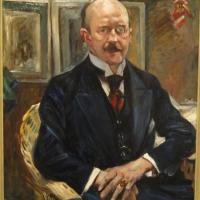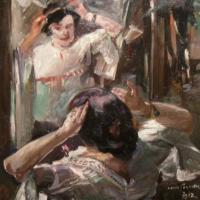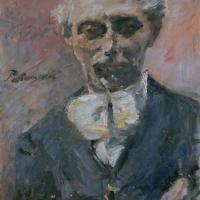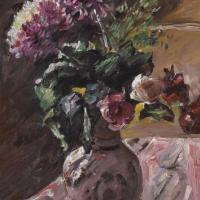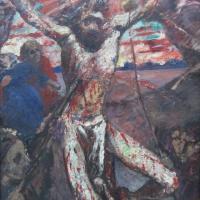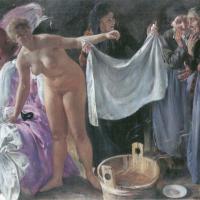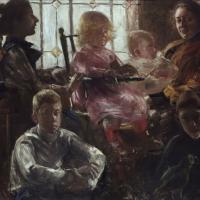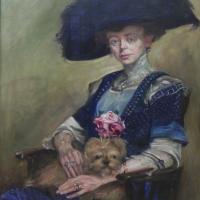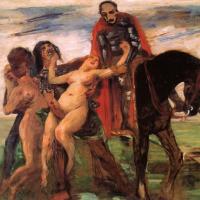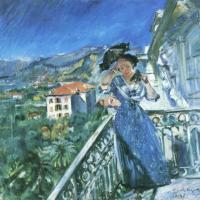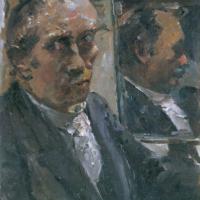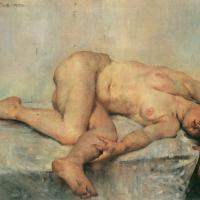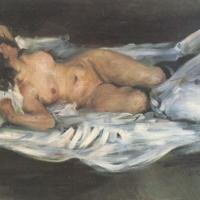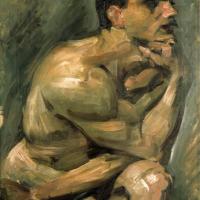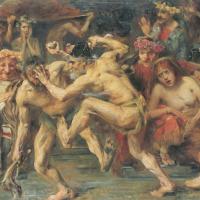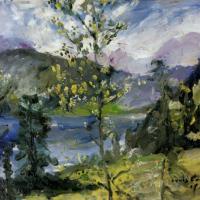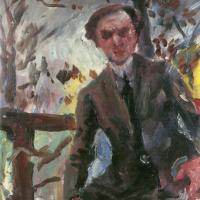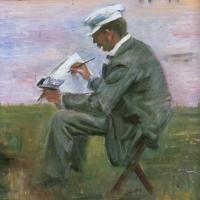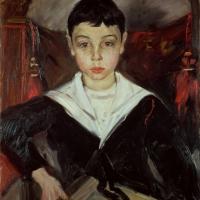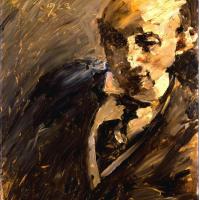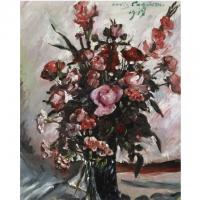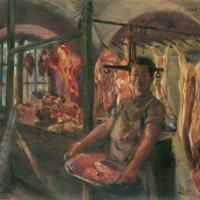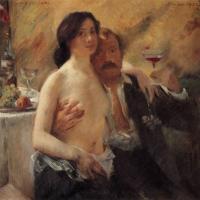Lovis Corinth (1858-1925)
Lovis Corinth (21 July 1858 – 17 July 1925) was a German artist and writer whose mature work as a painter and printmakerrealized a synthesis of impressionism and expressionism.
Corinth studied in Paris and Munich, joined the Berlin Secession group, later succeeding Max Liebermann as the group's president. His early work was naturalistic in approach. Corinth was initially antagonistic towards the expressionist movement, but after a stroke in 1911 his style loosened and took on many expressionistic qualities. His use of color became more vibrant, and he created portraits and landscapes of extraordinary vitality and power. Corinth's subject matter also included nudes and biblical scenes.
On 15 March 1921 Corinth received an honorary doctorate from the University of Königsberg. In 1925, he traveled to the Netherlands to view the works of his favorite Dutch masters. He caught pneumonia and died in Zandvoort.
In 1926, a commemorative exhibition of Corinth's paintings and watercolors was presented at the Nationalgalerie in Berlin, and an exhibition of his prints and drawings was held at the Berlin Academy. By 1930 the Nationalgalerie acquired several major paintings by Corinth in addition to those already in its collection.
During the Third Reich, Corinth's work was condemned by the Nazis as degenerate art. In 1937, Nazi authorities removed 295 of his works from public collections, and transported seven of them to Munich where they were displayed in March 1937 in the Degenerate Art Exhibition.
In 1910 Corinth had donated the painting Golgatha for the altar of the church of his birthplace, Tapiau. At the end of the Second World War, when the Red Army invaded East Prussia, this painting disappeared without trace. Tapiau was among the few East Prussian places not devastated by the war, which makes it likely that the painting was looted rather than destroyed.
In 2007, the German city of Hanover returned a painting by Corinth to the heirs of Jewish collector Curt Glaser who sold it in 1933 to fund his escape from the Nazis. The painting, Romische Campagna (Roman Landscape) (1914) was handed to Glaser's heirs, represented by his U.S.-based niece and her daughter.
The house where Corinth was born is still in the town, which is now Gvardeysk, Kaliningrad Oblast, Russia.


